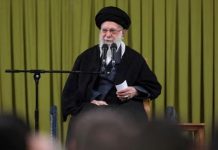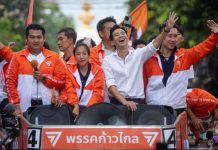Nara, Japan, Oct 28 The gunman accused of killing Japan’s former prime minister Shinzo Abe pleaded guilty Tuesday, three years after the assassination in broad daylight shocked the world.
The slaying forced a reckoning in a country with little experience of gun violence, and ignited scrutiny of alleged ties between prominent conservative lawmakers and a secretive sect, the Unification Church.
“Everything is true,” Tetsuya Yamagami said at a court in the western city of Nara, admitting to the murder of the country’s longest-serving leader in July 2022.
The 45-year-old was led handcuffed into the room with a rope around his waist.
When the judge asked him to state his name, Yamagami, who was wearing a black T-shirt and had his long hair tied back, replied in a barely audible voice.
His lawyer said they would contest certain charges, including violations of arms control laws for allegedly using a handmade weapon.
Yamagami’s trial had been a long time coming after the discovery of a suspicious item — later found to be harmless — caused its last-minute cancellation and the evacuation of the Nara court building in 2023.
One issue central to the case was whether extenuating circumstances applied due to “religious abuse” in Yamagami’s childhood stemming from his mother’s extreme devotion to the Unification Church, according to Japanese media reports.
Prosecutors told the court that Yamagami started building up resentment toward the Church, which he thinks derailed his life.
“He began to think he needed a gun” to attack Church executives, but having failed to procure one “he decided that he had to make one himself”, a prosecutor said.
Yamagami “thought he could draw public attention to the Church… if he killed someone as influential as Abe”, the prosecutor said.
The former prime minister had spoken at events organised by some of the church groups and received some criticism for doing so.

















